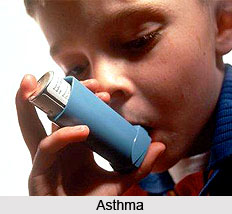 Respiratory Allergies are some of the most common forms of allergies in India. The pollution, dust mites, tobacco smoke and harmful gases in the environment are the basic reasons for respiratory allergies. Housing factors play a significant role in respiratory health and greatly aggravate or increase susceptibility to asthma, allergies, and other respiratory illnesses. Numerous home pollutants like pet dander, dust mites, cockroach debris, mold, tobacco smoke, and paint fumes are known to aggravate respiratory allergies. Controlling exposure to these and other triggers in the environment benefits overall respiratory health and prevents respiratory allergies.
Respiratory Allergies are some of the most common forms of allergies in India. The pollution, dust mites, tobacco smoke and harmful gases in the environment are the basic reasons for respiratory allergies. Housing factors play a significant role in respiratory health and greatly aggravate or increase susceptibility to asthma, allergies, and other respiratory illnesses. Numerous home pollutants like pet dander, dust mites, cockroach debris, mold, tobacco smoke, and paint fumes are known to aggravate respiratory allergies. Controlling exposure to these and other triggers in the environment benefits overall respiratory health and prevents respiratory allergies.
Asthma is now a day being considered as one of the major respiratory allergies, seen at large in India. Scientists do not know exactly what causes the development of asthma in individuals, nor is there a cure for asthma once it has developed. It is generally thought that some people have the genetic predisposition toward developing asthma, but environmental factors play a role in the actual development of this respiratory allergy. Allergens are typically defined as something that causes a respiratory allergic reaction in some people, but not others. Indoor allergens include dust mites, cockroach debris, pet dander, and mold. Irritants are elements that irritate the respiratory tract and include tobacco smoke and paint fumes.
Although many people who have asthma have respiratory allergies, the vice versa is always not true. In addition to asthma attacks induced by allergens, respiratory allergic diseases include rhinitis (hay fever) and sinusitis. The same indoor allergens that may aggravate asthma attacks in asthmatics can be responsible for respiratory allergies in others. Overall, the rates of individuals suffering from respiratory allergies are increasing. Housing conditions can play a key role in delaying or preventing the development of respiratory allergies. Keeping the environment clean, free of dust, pet hairs or other kinds of allergens can successfully prevent respiratory allergies.




